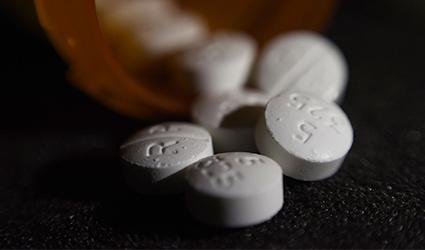Retention in de-addiction therapy increased on administration of medicines.
September 11, 2018
Source: drugdu
 1,229
1,229
 Medications like buprenorphine, naltrexone, or methadone when added to treatment of opioid use disorder (OUD) youths, resulted in longer adherence to in-care regimen. However, very few receive the medicines, reveals a retrospective cohort study.
Medications like buprenorphine, naltrexone, or methadone when added to treatment of opioid use disorder (OUD) youths, resulted in longer adherence to in-care regimen. However, very few receive the medicines, reveals a retrospective cohort study.
The study on 4,837 OUD youths between the age 13-22 years including 2,752 females observed that only 1 out of 4 youths and 1 out of 21 adolescents received medication, as reported by Scott E. Hadland, MD, MPH, MS, of Grayken Center for Addiction and Department of Pediatrics, Boston Medical Center, and coinvestigators.
The results brought greater attention to the need for better management of OUD in young adults and increase their adherence to treatment, noted Dr. Hadland and co-authors in JAMA Pediatrics.
“As deaths from overdose increase among U.S. youths, it is vital that clinicians, researchers, and policy makers ensure that access to evidence-based OUD medications for young people remains a national priority,” they said.
The researchers found that retention in de-addiction centres was higher in youths who were given OUD medications on scheduled time. In care median retention was observed to be 67 days when youths were given only behavioural therapy. However, it jumped to 123 days, 150 days and 324 days on giving buprenorphine, naltrexone, or methadone respectively.
Dr. Hadland and co-authors feel that staying in care is imperative to ensure effective treatment of OUD, “Even when patients do not reduce their substance use, individuals engaged and retained in care can receive harm-reduction services and treatment of comorbid medical and psychiatric conditions.”
By editorRead more on
- Shanghai Pharmaceuticals’ Rivaroxaban Tablets Receive Singapore Drug Registration Certificate February 27, 2026
- Boehringer Ingelheim’s “Zonartinib” Receives FDA Approval for Treatment-naïve NSCLC February 27, 2026
- Marketing application for recombinant anti-IL-4Rα humanized monoclonal antibody injection accepted February 27, 2026
- Genrix Bio’s marketing application for talicibazine injection for the treatment of adult seasonal allergic rhinitis has been accepted. February 27, 2026
- 13.8 billion! Leading domestic imaging equipment manufacturer sees significant revenue growth. February 27, 2026
your submission has already been received.
OK
Subscribe
Please enter a valid Email address!
Submit
The most relevant industry news & insight will be sent to you every two weeks.



